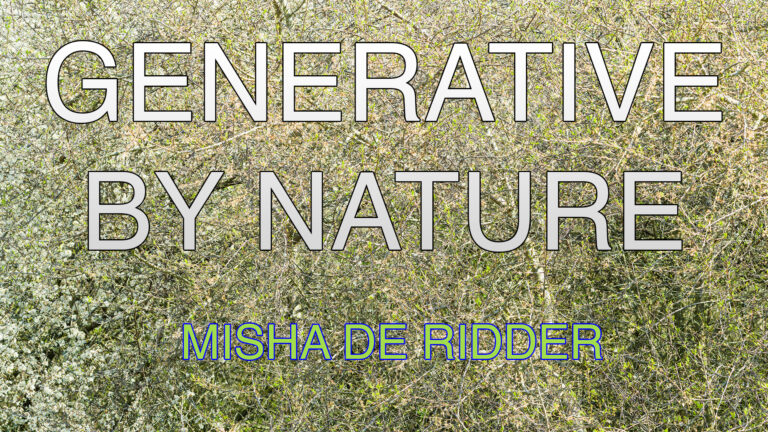
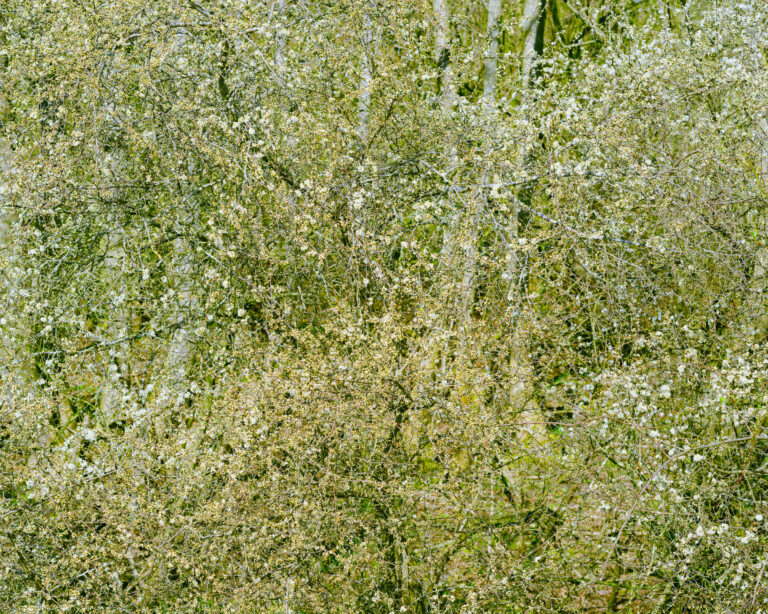
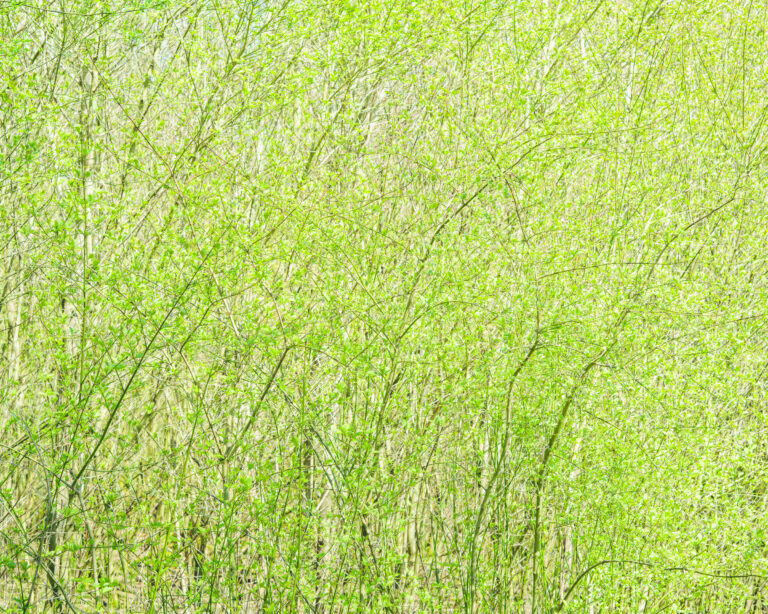
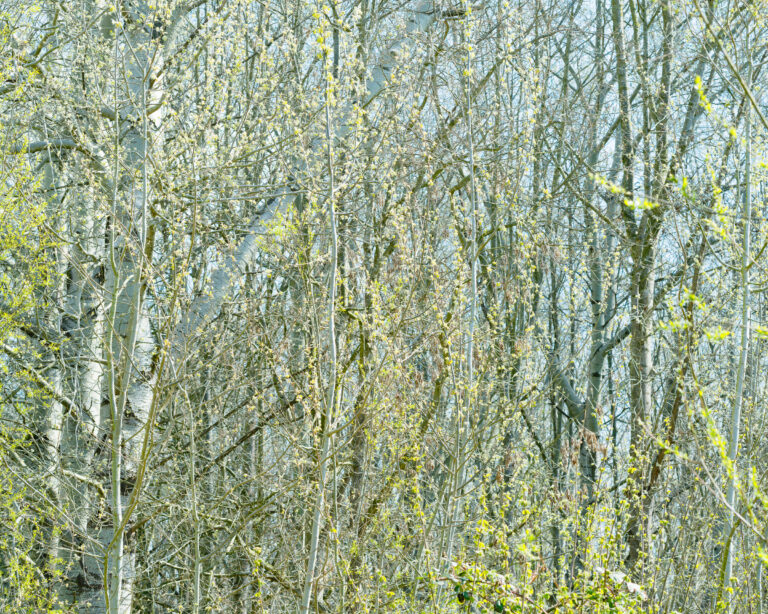
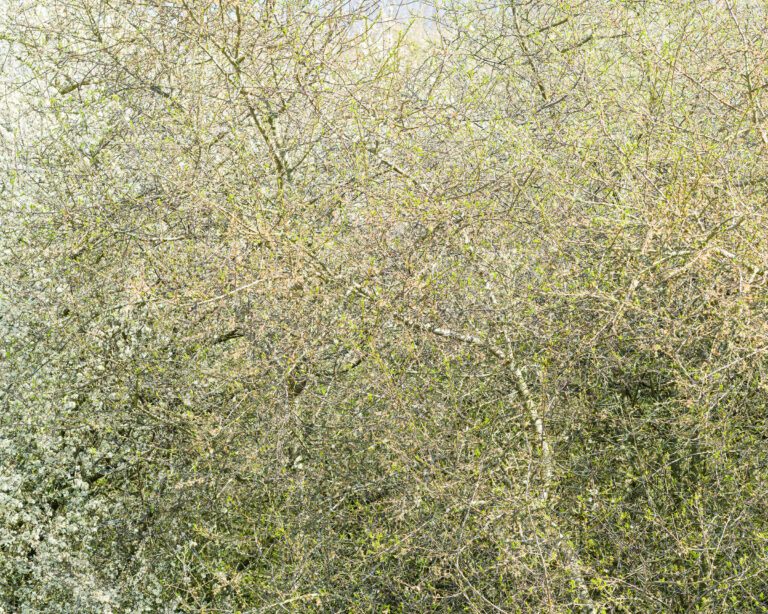





As part of the Future Fragments series, we present the project by Misha de Ridder, who photographs the moment when spring reawakens in a rewilded area of an artificial forest in the Netherlands. This place is unique — a human-made ecosystem in which nature is regaining its autonomy. The soil, trees, light, and water slowly reclaim their agency, reconfiguring the landscape according to their own unpredictable rules.
De Ridder uses photography not as a medium of aesthetic contemplation, but as an analytical instrument — a way to register a process that the human eye alone cannot fully perceive. His images do not simply document “nature”; they record the computational process of nature itself — subtle shifts in color, density, texture, and light. Each photograph is an attempt to capture movement unfolding in time — a kind of biological algorithm of regeneration.
In this sense, the series becomes not only a homage to emerging biodiversity, but also an observation of a generative system — nature as the true image-producing machine. De Ridder does not control it; he accompanies it, attuning his gaze to a rhythm in which light and matter can be read as a complex code.
Photography, in De Ridder’s work, becomes an interface between the organic and the technological. Each image marks a meeting point between two forms of intelligence: the biological and the machinic. On one side — nature, which computes, adapts, and reacts; on the other — the camera, a tool grounded in sensors, processing, and precision. This encounter is not hierarchical: technology does not dominate nature but participates in its logic, reading it with sensitivity and respect.
De Ridder photographs in an almost scientific manner — methodical, systematic, yet profoundly tender. His images testify that nature is not a static object of contemplation but a dynamic, self-transforming entity. Photography here becomes a mode of collaboration: the human does not impose, but learns to see together with the camera — and with nature itself.
The rewilded forest in the Netherlands functions as a laboratory of processes that resist easy classification. It is both natural and artificial, free and programmed, wild and precise. The same duality runs through De Ridder’s photographs — they appear organic yet result from carefully calibrated technological work: the measurement of light, time, color, exposure. The outcome is a body of images that resemble data maps, yet preserve the warmth and sensuality of a living landscape.
The photographer becomes a kind of threshold observer, standing between the natural and the digital, between perception and computation. He teaches us to see nature not as a background for human activity, but as an autonomous system — capable of creation, regeneration, and learning.
It is in this liminal space — between nature and technology — that a new sensibility emerges. A sensibility in which the camera does not merely “record” reality, but participates in its generation. Like researchers of artificial intelligence, De Ridder is interested in process rather than result. Yet unlike algorithmic systems, in his work the generative engine is nature itself — unpredictable, organic, and free from intention.
His carefully made pigment prints show intricate details and depth of field in the photographs, resulting in an immersive experience confronting the viewer with the autonomous emergent powers of the universe. The complete series also exists as a website; during the launch in spring 2022 the full collection of 36 photographs were minted on the day they were taken on the Tezos blockchain, functioning as a kind of evolving calendar during the three months of spring.








generativebynature.mishaderidder.com
In his lecture What is Intelligence? (The Long Now Foundation, 2025), Blaise Agüera y Arcas proposes that both biological and technological processes can be understood as forms of computation — systems that process information, adapt, and generate new states. In this view, nature and technology are not opposites but coexisting manifestations of intelligence distributed throughout the world.